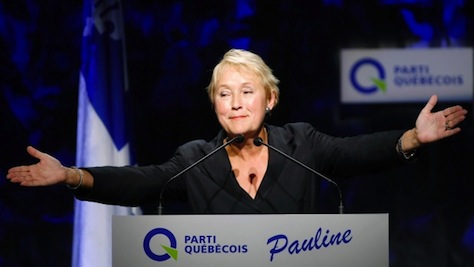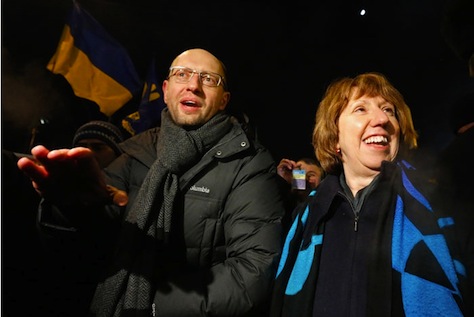Despite polls that generally show a slim but steady lead for Québec premier Pauline Marois’s government, her decision to call snap elections after just 17 months in office leaves her party, the sovereignist Parti québécois (PQ) is hardly a lock to return to power, let alone to win a majority government.![]()
![]()
That makes the April 7 race to elect all 125 members of the Assemblée nationale (National Assembly) an incredibly high-stakes moment in Québécois politics — and, by extension, Canadian politics.
In contrast to the September 2012 election, essentially a referendum on a decade of rule by the Parti libéral du Québec (Liberal Party, or PLQ) and premier Jean Charest, the upcoming spring election will instead be a referendum on Marois (pictured above) and whether the province is willing to entrust a majority government to Marois’s separatist, leftist party. If Marois loses, it will take the wind out of the sails of the sovereignist movement in Québec, especially just a year before federal elections in Canada in which the Bloc Québécois, a PQ-affiliated party meant to represent the province’s interest in Ottawa. If Marois wins, it might be the last opportunity for the Meech Lake/Charlottetown generation of Québécois politicians to push forward with a third (and possibly final) referendum on Québec’s independence.
If Québec held its provincial election tomorrow, Marois would win a majority government, according to polls. But that’s hardly much comfort — there are at least five reasons to doubt whether Marois can truly pull it off: Continue reading Marois calls snap election with eye on Québécois separatist majority

